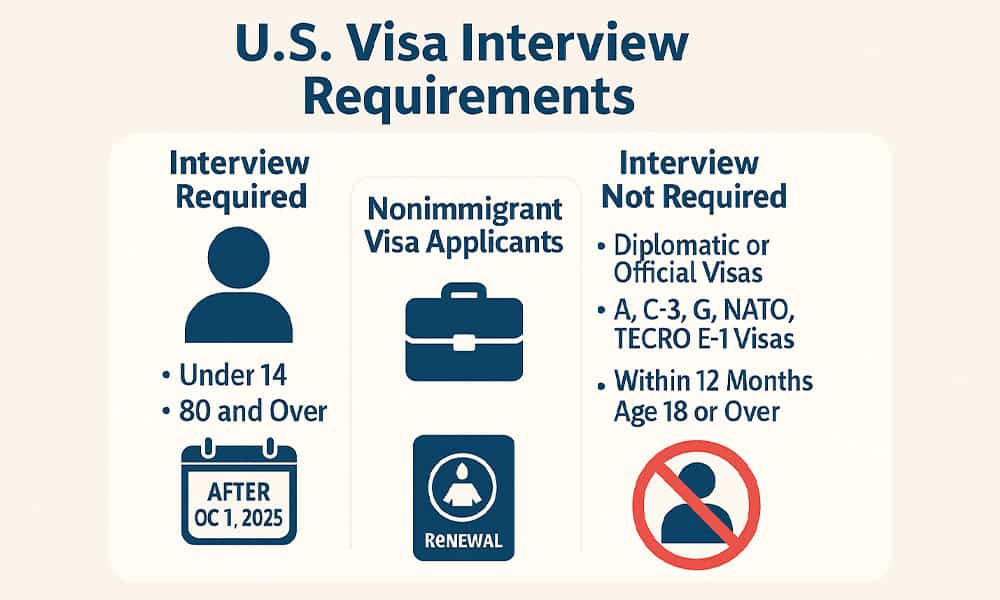The U.S. Embassy here has rolled out new guidelines for nonimmigrant visa applications, making in-person interviews the norm for most applicants. The changes, set to take effect tomorrow, October 1, end many of the interview waivers that eased the process during recent years. This shift affects thousands of Costa Ricans who travel to the United States for business, tourism, or temporary work each year.
Under the updated rules, all nonimmigrant visa seekers must appear for an in-person interview with a consular officer, regardless of age. That means children under 14 and adults over 79, who often skipped interviews in the past, now face the same requirement. The move aims to strengthen security checks amid growing global travel demands, according to the U.S. Department of State.
A few groups remain eligible for waivers. Diplomatic and official visa applicants can still bypass the interview. The same goes for those applying under specific visa categories like A-1, A-2, C-3 (excluding attendants, servants, or personal employees of accredited officials), G-1 through G-4, NATO-1 through NATO-6, or TECRO E-1.
For everyday travelers, renewals offer limited relief. People renewing B-1, B-2, or B1/B2 visas can qualify for a waiver if they apply within 12 months of their previous visa’s expiration. The prior visa must have been issued for its full validity period, and the applicant had to be at least 18 years old when it was granted. Temporary agricultural workers renewing H-2A visas follow the same 12-month rule and age condition.
To even consider a waiver, applicants must submit their request in their country of nationality or usual residence—Costa Rica for most locals here. They can’t have any prior visa denials on record, unless those were later resolved or waived. Plus, they must show no signs of ineligibility, such as criminal history or immigration violations.
Consular officers hold the final say and can call anyone in for an interview if they spot red flags or if local conditions demand it. The embassy advises checking its website for the latest on application steps, wait times, and any tweaks to procedures.
This policy replaces an earlier update from July 25, which had expanded waivers temporarily. Back then, more categories enjoyed flexibility, but rising application volumes and security priorities prompted the rollback.
For Costa Ricans, the changes could mean longer waits at the embassy in Pavas, where lines already stretch during peak seasons. Last year, the U.S. issued over 50,000 nonimmigrant visas to Costa Rican nationals, mostly for tourism and business. With interviews now mandatory for most, experts predict bottlenecks unless staffing ramps up.
Travel agents in San José report clients scrambling to book appointments before the deadline. “Folks who planned quick renewals are rethinking trips,” said one agent who handles U.S. visa paperwork. The embassy urges applicants to start early and use the online Visa Wizard tool to figure out their category.
If you’re applying soon, head to the embassy’s visa page for forms and fees. Nonimmigrant visas cover short stays, not permanent moves, and require proof of ties to Costa Rica to avoid rejection.
These adjustments reflect broader U.S. efforts to balance efficiency with thorough vetting. As travel rebounds post-pandemic, Costa Ricans eyeing U.S. visits should plan accordingly to sidestep delays.






